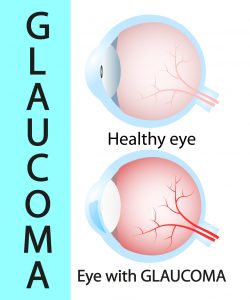 The Greek-style diet has long been touted as one that is full of heart healthy benefits. These benefits are thought to stem from the vast array of healthy fats from plant-based sources and limiting of saturated fats from red meats as well as the rich source of fruits and vegetables in this Mediterranean regimen. However, the health benefits may extend much further than initially realized. A recent study shows that the Mediterranean diet may help to lengthen life of older adults.
The Greek-style diet has long been touted as one that is full of heart healthy benefits. These benefits are thought to stem from the vast array of healthy fats from plant-based sources and limiting of saturated fats from red meats as well as the rich source of fruits and vegetables in this Mediterranean regimen. However, the health benefits may extend much further than initially realized. A recent study shows that the Mediterranean diet may help to lengthen life of older adults.
What is the Mediterranean diet?
The Mediterranean diet is a heart healthy eating regimen that has been linked with such benefits as low LDL cholesterol and improved overall heart health. These benefits are suggested to be from the emphasis of fruit and vegetable intake on this regimen as well as the following diet guidelines.
- Consuming plenty of fiber-rich legumes, nuts, seeds, and whole grains.
- Limiting salt intake, and instead using herbs and spices to flavor food.
- Only eating red meat a few times a month, and instead loading up on lean proteins, fatty fish, and plant-based protein and fat sources.
- Eating fish or poultry like chicken or turkey at least twice a week.
- Focusing on whole grains versus refined grains and cutting out trans fats from the diet.
- Drinking antioxidant-rich beverages like grape juice or wine, about five ounces a day (optional).
- Staying active most days of the week.
Health benefits of the Greek-style diet
The heart health benefits of the Greek-style diet are the most well-known. However research shows that health benefits of this eating regimen may extend beyond heart health. Other health benefits that come as a result of the Greek-style diet include:
- improved digestive health
- enhanced cognitive function
- lower risk of certain cancers
- improved blood glucose levels
Mediterranean diet and longer life
A recent meta-analysis study in the British Journal of Nutrition looked at the effects of a Mediterranean-style diet on length of life in older adults. This long term study observed data of over 5000 people aged 65 years or older. These individuals were observed for around 8 years or more on average. Study results show that those who followed a Mediterranean-style diet had prolonged survival as compared to those who did not follow such a diet. Researchers suggest that the Mediterranean-style eating regimen could be beneficial to older adults to help reduce chronic disease risk factors, and in turn potentially lengthen their life.
Other ways to improve health
Besides eating a diet full of health fats, there are also other lifestyle changes that could lengthen your life.
- Get plenty of sleep: Sleep can impact blood pressure regulation and hormone regulation, to name a few. Therefore, be sure to get at least 7 to 9 hours of sleep each night. If you have trouble sleeping, try such strategies as blackout curtains, limiting screen time at night, or natural supplements like Somnova. Somnova by Vita Sciences contains melatonin, which is a non-habit forming supplement that can help promote better sleep.
- Drink enough water every day: Staying hydrated is an important part of any healthy lifestyle. Check your urine daily to make sure you are staying hydrated. If your urine is darker than lemonade, then it is time to drink more water. A good rule of thumb to follow is about half of your body weight (in lbs.) in ounces per day of fluid. For example, someone who is 200 pounds, should drink about 100 ounces, or 12.5 cups of fluid each day. Fluid can be any unsweetened beverage like water, low calorie drinks, flavored water, tea, or decaf coffee, to name a few.
- Take heart healthy supplements to fill in the nutritional gaps: If you don’t think you are getting enough healthy fats from your diet, then add in a supplement. One such supplement is fish oil, which has been shown to support healthy cholesterol levels. The fish oil from Vita Sciences in particular is a pure, burpless brand with 1000 milligrams of EPA and DHA shown to support brain, heart, and immune health.
- Reduce stress: It will be important to keep your stress levels low for optimal health. This is because not only can stress affect blood pressure, but it can also lead to emotional eating and poor sleep, which can affect overall health. Therefore, talk to a friend, family member, or professional for stress management strategies. Also, engage in meditation, yoga, relaxation breathing, or other relaxing activities like walking to help manage stress.
-written by Staci Gulbin, MS, MEd, RD, LDN
References:
Bonaccio, M., Di Castelnuovo, A., Costanzo, S., Gialluisi, A., Persichillo, M., Cerletti, C., . . . Iacoviello, L. (n.d.). Mediterranean diet and mortality in the elderly: A prospective cohort study and a meta-analysis. British Journal of Nutrition, 1-14. doi:10.1017/S0007114518002179
Mayo Clinic (November 3, 2017) “Mediterranean diet: a heart-healthy eating plan.” https://www.mayoclinic.org/healthy-lifestyle/nutrition-and-healthy-eating/in-depth/mediterranean-diet/art-20047801
National Sleep Foundation (accessed September 12, 2018) “How Much Sleep Do We Really Need?” https://sleepfoundation.org/how-sleep-works/how-much-sleep-do-we-really-need
Romagnolo, D. F., & Selmin, O. I. (2017). Mediterranean Diet and Prevention of Chronic Diseases. Nutrition Today, 52(5), 208–222. http://doi.org/10.1097/NT.0000000000000228
 Any kind of movement is good for health. Studies have shown time and again that sitting is bad for health. But, is one kind of exercise better than the other when it comes to weight loss? This is a controversial topic since some studies show that strength training can keep calories burning long after your workout. However, a recent study has shown that cardio exercise may actually be better than strength training in boosting metabolism.
Any kind of movement is good for health. Studies have shown time and again that sitting is bad for health. But, is one kind of exercise better than the other when it comes to weight loss? This is a controversial topic since some studies show that strength training can keep calories burning long after your workout. However, a recent study has shown that cardio exercise may actually be better than strength training in boosting metabolism. About alcohol
About alcohol Could it be? Could the delicious sweetness of chocolate actually be good for you? The answer is yes, but in moderation. Chock full of antioxidants, this delicious treat may be able to help you combat heart disease. A recent study has shown that moderate consumption of chocolate can reduce risk of heart disease.
Could it be? Could the delicious sweetness of chocolate actually be good for you? The answer is yes, but in moderation. Chock full of antioxidants, this delicious treat may be able to help you combat heart disease. A recent study has shown that moderate consumption of chocolate can reduce risk of heart disease. What is glaucoma?
What is glaucoma? Night shifts, or working from evening to morning, can be rough on your body and mind. Your meal patterns can become confused. Sleeping patterns can become thrown off course. And in turn, weight gain and sleeping issues can develop over time. A recent study has found that night shifts can cause digestive problems over time by throwing off the body’s internal clock.
Night shifts, or working from evening to morning, can be rough on your body and mind. Your meal patterns can become confused. Sleeping patterns can become thrown off course. And in turn, weight gain and sleeping issues can develop over time. A recent study has found that night shifts can cause digestive problems over time by throwing off the body’s internal clock. Now you may be saying to yourself, “Another article telling me to eat vegetables.” :sigh: However, this is not just another one of “those” articles. There are more reasons to eat your veggies than you may think. Besides providing digestive-friendly fiber and antioxidants, a recent study has shown that eating a more plant-based diet can actually lower your heart and diabetes health numbers.
Now you may be saying to yourself, “Another article telling me to eat vegetables.” :sigh: However, this is not just another one of “those” articles. There are more reasons to eat your veggies than you may think. Besides providing digestive-friendly fiber and antioxidants, a recent study has shown that eating a more plant-based diet can actually lower your heart and diabetes health numbers. Probiotics have become the talk of the town, and for good reason. Every day more research shows that taking probiotics can reduce inflammation in the gut, and in turn, may help reduce risk of inflammatory conditions such as heart disease, eczema, and inflammatory bowel disease. Therefore, adding a probiotic to your daily routine may be the answer to help free your gut, and in turn your body, from inflammation.
Probiotics have become the talk of the town, and for good reason. Every day more research shows that taking probiotics can reduce inflammation in the gut, and in turn, may help reduce risk of inflammatory conditions such as heart disease, eczema, and inflammatory bowel disease. Therefore, adding a probiotic to your daily routine may be the answer to help free your gut, and in turn your body, from inflammation. Heart disease is the leading cause of death for men and women in the United States. It accounts for one in four deaths each year. However, yo can prevent heart disease by changing some lifestyle factors to lower your risk. Risk factors of heart disease include poor diet, physical inactivity, being overweight or obese, being a smoker, and having diabetes. Fortunately, by working to change a few things in your daily routine, you can lower your risk of heart disease. Here are the top five things you can do today to lower your risk of heart disease.
Heart disease is the leading cause of death for men and women in the United States. It accounts for one in four deaths each year. However, yo can prevent heart disease by changing some lifestyle factors to lower your risk. Risk factors of heart disease include poor diet, physical inactivity, being overweight or obese, being a smoker, and having diabetes. Fortunately, by working to change a few things in your daily routine, you can lower your risk of heart disease. Here are the top five things you can do today to lower your risk of heart disease. Sleep. Work. Eat. Repeat. Does that sound like your day, or something like it? Sleep is often set aside as just something that a person does at the end of the day. It is often overlooked as a very important part of optimal health. A recent study found that it is so important in fact, that not getting enough sleep may increase your risk for mental health disorders.
Sleep. Work. Eat. Repeat. Does that sound like your day, or something like it? Sleep is often set aside as just something that a person does at the end of the day. It is often overlooked as a very important part of optimal health. A recent study found that it is so important in fact, that not getting enough sleep may increase your risk for mental health disorders.